2018 IACC Working Group Biographies
Chairs
David G. Amaral, Ph.D.
Working Group Co-Chair; Distinguished Professor, Department of Psychiatry and Neuroscience, University of California, Davis; Director of Research, UC Davis MIND Institute
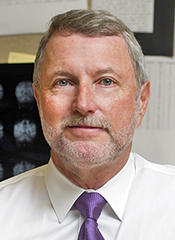
Dr. David Amaral joined the IACC as a public member in 2015. Dr. Amaral joined the University of California, Davis in 1995 as a Professor in the Department of Psychiatry and Behavioral Sciences and the Center for Neuroscience and is Distinguished Professor of Psychiatry and Neuroscience. In 1998, he was named Chair of the Beneto Foundation and Founding Research Director of the UC Davis MIND (Medical Investigation of Neurodevelopmental Disorders) Institute. Dr. Amaral received a joint Ph.D. in psychology and neurobiology from the University of Rochester and carried out postdoctoral work at Washington University in neuroanatomy. He spent 13 years at the Salk Institute for Biological Studies before moving to UC Davis. Dr. Amaral pursues research on the neurobiology of social behavior and the development, neuroanatomical organization, and plasticity of the brain, and the biological bases of autism spectrum disorder (ASD). His autism research includes neuroanatomical and neuroimaging studies of neuroanatomy, brain function, and research into neuroimmune etiologies of ASD. As Research Director of the MIND Institute, he coordinates a comprehensive and multidisciplinary analysis of children with autism called the Autism Phenome Project designed to define biomedical characteristics of different types of autism. Most recently, Dr. Amaral has become Director of Autism BrainNet, a collaborative effort sponsored by the Simons Foundation, Autism Speaks, and the Autism Science Foundation to solicit post mortem brain tissue to facilitate autism research. In April of 2015, he became Editor-in-Chief of Autism Research, the official journal of the International Society for Autism Research.
Julie Taylor, Ph.D.
Working Group Co-Chair; Associate Professor of Pediatrics, Vanderbilt Kennedy Center Investigator, Vanderbilt University Medical Center
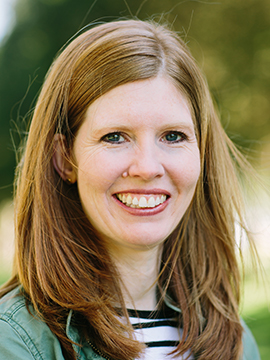
Dr. Julie Lounds Taylor joined the IACC as a public member in 2015. Dr. Taylor is an Associate Professor of Pediatrics at Vanderbilt University Medical Center and an Investigator at the Vanderbilt Kennedy Center, a Eunice Kennedy Shriver Intellectual and Developmental Disabilities Research Center (IDDDRC). Her current research interests include factors that promote a positive transition to adulthood for individuals with autism spectrum disorders and their families, as well as the impact of having a sibling with an intellectual or developmental disability. She has published research on a variety of autism and disability services-related issues, including sex and gender differences, peer victimization, transition planning, secondary education and vocational training, employment, and daily life skills for people on the autism spectrum. Dr. Taylor earned her Ph.D. in developmental psychology at the University of Notre Dame and conducted her postdoctoral research at the Waisman Center, Lifespan Family Research Laboratory at the University of Wisconsin-Madison.
IACC and Federal Agency Members
Samantha Crane, J.D.
Legal Director and Director of Public Policy, Autistic Self Advocacy Network (ASAN)

Samantha Crane, J.D. joined the IACC as a public member in 2015. Ms. Crane is Director of Public Policy at ASAN’s national office and an autism self-advocate. She previously served as staff attorney at the Bazelon Center of Mental Health Law, focusing on enforcing the right to community integration as established by the Supreme Court in Olmstead v. L.C., and as an associate at the litigation firm Quinn Emanuel Urquhart, & Sullivan, L.L.P., where she focused on patent and securities litigation. From 2009 to 2010, Ms. Crane served as law clerk to the Honorable Judge William H. Yohn at the U.S. District Court for the Eastern District of Pennsylvania. Ms. Crane holds a B.A. from Swarthmore College, with high honors, in Psychology. She graduated magna cum laude in June 2009 from Harvard Law School, where she was Senior Content Editor for the Journal of Law and Gender. During law school she interned at the Civil Rights Division of the U.S. Department of Justice, where she worked in the Disability Rights Section. She also interned at the American Bar Association’s Commission on Mental and Physical Disability, the Disability Law Center of Massachusetts and Harvard Law School’s clinical programs in special education and in disability and estate planning.
Patricia Dietz, Dr.P.H., M.P.H.
Chief, Developmental Disabilities Branch, National Center for Birth Defects and Developmental Disabilities, U.S. Centers for Disease Control and Prevention
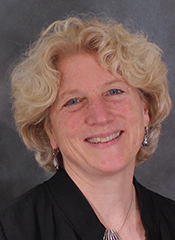
Dr. Patricia (Patty) Dietz is the Branch Chief of Developmental Disabilities Branch, Division of Congenital and Developmental Disorders in CDC’s National Center for Birth Defections and Developmental Disabilities. She has over 20 years of experience at the Centers for Disease Control and Prevention. She led the Program and Performance Improvement Office in the National Center for HIV/AIDS, Viral Hepatitis, STDs and TB Prevention. Her office supported the Center’s data-driven reviews; managed AtlasPlus, a platform for downloading surveillance data and creating maps and charts; and led two Center-wide cooperative agreements, one on economic modeling and cost-effectiveness and the other on HIV/AIDs, hepatitis, STD and TB prevention programs in the US-Affiliated Pacific Islands. Dr. Dietz joined the Centers for Disease Control and Prevention in 1994 as an EIS officer and has served in multiple roles since then in the Division of Reproductive Health, the Division of HIV/AIDS Prevention, and the Office of the Director in the National Center for HIV/AIDS, Viral Hepatitis, STDs and TB Prevention. She has authored or co-authored over 100 peer-reviewed articles. She received a Masters of Public Health at the University of North Carolina and a Doctorate of Public Health from Johns Hopkins University in Maternal and Child Health.
Jennifer Johnson, Ed.D.
Deputy Director, Administration on Intellectual and Developmental Disabilities (AIDD), Administration for Community Living (ACL)
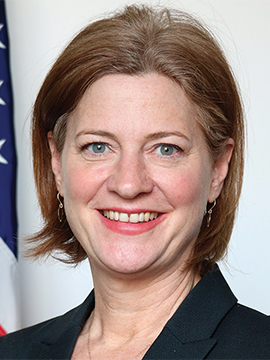
Dr. Jennifer Johnson is Deputy Director of the Administration on Intellectual and Developmental Disabilities (AIDD). Dr. Johnson holds a doctorate in special education from the George Washington University (GW). She has worked at the Department of Health and Human Services for over a decade. She began her career with the federal government in AIDD when it was a part of the Administration for Children and Families. In her most recent position, she led the Office of Program Support for AIDD. Previously, Dr. Johnson worked in the private sector holding positions in organizations such as the Council for Exceptional Children, the National Clearinghouse for Professions in Special Education, the National Information Center for Children and Youth with Disabilities, the Institute for Women’s Policy Research, and GW. Her work focused on a broad variety of disability issues, including early care and education, implementation of disability policy, the intersection of disability and diversity, and professional development for educators.
Alice Kau, Ph.D.
Program Director, Eunice Kennedy Shriver National Institute of Child Health and Human Development (NICHD), National Institutes of Health (NIH)
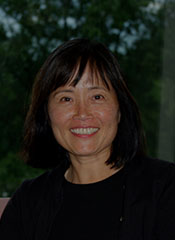
Dr. Alice Kau joined the Intellectual and Developmental Disabilities Branch as a Health Scientist Administrator in June 2003. Dr. Kau is responsible for the Branch’s Bio-behavioral Research Program with emphasis on autism research. She also serves as a key member of the autism and behavioral science research communities on behalf of the Branch and assists in formulating and planning activities of these programs. Dr. Kau received her doctorate in developmental psychology from Ohio State University and completed a postdoctoral fellowship in clinical psychology at the Department of Pediatrics at the Johns Hopkins University School of Medicine. Prior to coming to the NICHD, Dr. Kau was an assistant professor/of psychology at the Kennedy Krieger Institute, Johns Hopkins University.
Kevin Pelphrey, Ph.D.
Harrison-Wood Jefferson Scholars Foundation Professor of Neurology & Professor, Curry School of Education, University of Virginia
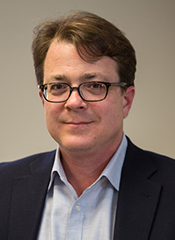
Dr. Kevin Pelphrey joined the IACC as a public member in 2015. As a neuroscientist, his research investigates the brain basis of autism and related neurodevelopmental disorders. The goal of his research is to understand the causes of autism to help get the right treatment to the right individual at the right time. Dr. Pelphrey is also the Principal Investigator of the NIH Autism Center for Excellence—Multimodal Developmental Neurogenetics of Females with Autism network that spans the University of Virginia (the lead site), George Washington University, Children’s National Health System, Yale, UCLA, University of Southern California, University of Denver, University of Washington, and Seattle Children’s Research Institute. His contributions to the field have been recognized by receipt of a NIH Scientist Career Development Award from the National Institutes of Health, a John Merck Scholars Award, the Microsoft Corporation’s Breakthrough Award and the American Psychological Association's Boyd McCandless Award for distinguished early career theoretical contributions to Developmental Psychology. Dr. Pelphrey is the father of five children, including a daughter and a son on the autism spectrum.
Denise Pintello, Ph.D., M.S.W.
Chief, Child and Adolescent Services Research Program; Chief, Dissemination and Implementation Research Program, Division of Intervention and Services Research, National Institute of Mental Health
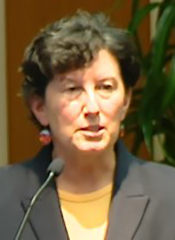
Dr. Denise Pintello currently serves as the Chief of the Child and Adolescent Services Research Program and as the Chief of the Dissemination and Implementation Research Program at the National Institute of Mental Health (NIMH) within the National Institutes of Health. At NIMH, she oversees three research portfolios focusing on: (1) child and adolescent services research; (2) autism services research impacting young children and school-aged youth and (3) dissemination and implementation research. Before coming to NIMH, she served as the Special Assistant for the Director and the Deputy Director of the National Institute on Drug Abuse and for 11 years, oversaw the implementation of innovative scientific initiatives and special research dissemination projects. As a social worker for more than two decades, Dr. Pintello worked extensively in child welfare, mental health and substance abuse and provided clinical, case management and supervisory services to over 1,500 children and adults. She has also conducted research studies within the fields of child welfare, domestic violence, juvenile justice, mental health and substance abuse. Dr. Pintello’s publications have focused on the clinical treatment of intrafamilial child sexual abuse, behavioral factors associated with post-traumatic stress in women, predictors of child maltreatment recurrence, health services research and research dissemination.
Scott Robertson, Ph.D.
Policy Advisor, Youth Policy Team, Office of Disability Employment Policy, U.S. Department of Labor
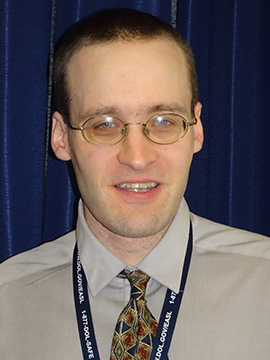
Dr. Scott Michael Robertson, an autistic adult, works as policy advisor on the Youth Policy Team at the U.S. Department of Labor’s Office of Disability Employment Policy. He previously worked as a Joseph P. Kennedy, Jr. Fellow for Senator Tom Harkin in the U.S. Senate Committee on Health, Education, Labor, and Pensions. Dr. Robertson has also served as a Public Member of the federal Interagency Autism Coordinating Committee and a Council Member on the Pennsylvania Developmental Disabilities Council. In 2006, he co-founded the Autistic Self Advocacy Network (ASAN) as a national 501(c)(3) nonprofit organization, and then served as the Founding Vice President. Dr. Robertson completed his Ph.D. in information sciences and technology at Penn State University after investigating cyber- and face-to-face bullying of autistic youth for his dissertation study.
Marcella Ronyak, Ph.D., L.C.S.W., CDP
Director, Division of Clinical & Community Services, Indian Health Service (IHS), Headquarters

Dr. Marcy Ronyak is a member of the Confederated Tribes of the Colville Reservation in Nespelem, Washington. Dr. Ronyak, is the Director for the Division of Clinical & Community Services, Indian Health Service (IHS), Headquarters. She is responsible for providing leadership and direction to programs and activities designed to improve the health services to 2.3 million American Indians and Alaska Natives (AI/AN) through a system of IHS, Tribal, and Urban (I/T/U) operated facilities and programs. Previously, she served at IHS as the Deputy Director for the Division of Behavioral Health. Prior to re-joining IHS, she was the Director of the Office of Indian Alcohol and Substance Abuse at the Substance Abuse and Mental Health Services (SAMHSA) and served as the IHS Alcohol and Substance Abuse Lead. Preceding her federal career, she worked for the Confederated Tribes of the Colville Reservation as the Tribal Psychologist and an independent contractor providing clinical services to children and families within the community. Dr. Ronyak is a parent of a child on the autism spectrum and a member of the Interagency Autism Coordinating Committee.
Nina Schor, M.D., Ph.D.
Deputy Director, National Institute of Neurological Disorders and Stroke (NINDS), National Institutes of Health (NIH)
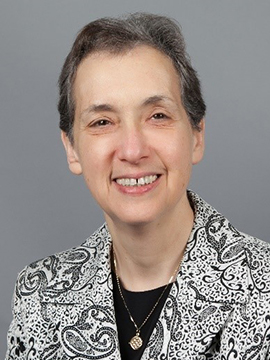
Dr. Nina Schor is the Deputy Director of the National Institute of Neurological Disorders and Stroke (NINDS) at the NIH. Dr. Schor is a pediatric neurologist and previously served as chair of the department of pediatrics at the University of Rochester, New York and pediatrician-in-chief at Golisano Children’s Hospital. While at the University of Rochester, she was the first Director of the Translational Biomedical Science Ph.D. Program and played an integral role in developing the program and recruiting graduate students. The focus of Dr. Schor’s research has been on neuroblastoma, a type of pediatric cancer, and neuronal death caused by oxidative stress, which occurs when harmful forms of oxygen molecules damage cells. Prior to her time in Rochester, she was a professor, chief of child neurology and associate dean for medical student research at the University of Pittsburgh in PA. Dr. Shcor earned a Ph.D. in medical biochemistry from Rockefeller University in New York City and her M.D. from Weill Cornell Medicine in New York City. She completed residency programs in neurology and pediatrics at Children’s Hospital and Harvard Medical School in Boston.
Alison Tepper Singer, M.B.A.
Parent/Family Member and Founder and President, Autism Science Foundation

Ms. Alison Singer has served as a public member on the IACC since 2007. Ms. Singer is Founder and President of the Autism Science Foundation, a not-for-profit organization launched in April 2009 to support autism research. The Autism Science Foundation supports autism research by providing funding and other assistance to scientists and organizations conducting, facilitating, publicizing and disseminating autism research. Ms. Singer is the mother of a child with autism and legal guardian of her adult brother with autism. From 2005-2009 she served as Executive Vice President and a Member of the Board of Directors at Autism Speaks. Ms. Singer also currently serves as Chair of the Associates Committee of the Seaver Autism Center at Mount Sinai School of Medicine, and on the external advisory boards of the Yale Child Study Center, the Marcus Autism Center at Emory University, and the CDC's Center for Birth Defects and Developmental Disabilities. She chairs the public relations committee for the International Society for Autism Research (INSAR) and serves as a member of the program committee for the International Meeting for Autism Research (IMFAR). Ms. Singer graduated magna cum laude from Yale University with a B.A. in Economics and has an M.B.A. from Harvard Business School.
External Participants
Gregory Barnes, M.D., Ph.D.
Director, University of Louisville Autism Center; Associate Professor, Child Neurology, Department of Neurology, University of Louisville School of Medicine
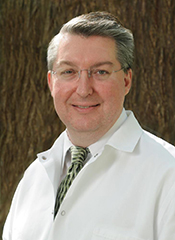
Dr. Gregory Barnes research interests are in understanding the origins of the high co-morbidity of autism and epilepsy. He is the inaugural permanent director of the University of Louisville Autism Center. Dr Barnes’ clinical and basic science research program investigates the genomic determinants of behavior and cognition in human and animal models of autism and epilepsy. The long-term goals of this research are to conduct studies in models of autism and epilepsy to aid in the identification of therapeutic drug targets to ameliorate the burden of neurologic disease in these individuals. Special emphasis is placed on the understanding of the contribution of GABAergic signaling, epileptiform discharges and sleep to epileptogenesis and behavior in the broad ASD populations. Dr. Barnes earned his undergraduate degree from Vanderbilt University and his M.D. and Ph.D. from the University of Kentucky. He completed his internship and residency in pediatrics at the St. Louis Children’s Hospital and went on to a fellowship in pediatric neurology at Boston Children’s Hospital and Harvard Medical School. He completed an epilepsy research fellowship from the Duke University Center for the Advanced Study of Epilepsy.
Timothy Buie, M.D.
Pediatric Gastroenterologist, Boston Children’s Hospital; Assistant Professor of Pediatrics, Harvard Medical School
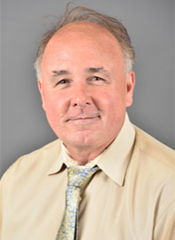
Dr. Timothy M. Buie is a Pediatric Gastroenterologist and Autism medical specialist at Boston Children’s Hospital. Prior to that, he worked in the pediatric gastroenterology department for 18 years at Massachusetts General Hospital for Children. He also served as the Director of Gastrointestinal and Nutrition at Massachusetts General Hospital’s Lurie Center for Autism. Dr. Buie is an Assistant Professor of Pediatrics at Harvard Medical School. In addition to managing a large patient population, Dr. Buie has published a variety of papers and book chapters characterizing gastrointestinal problems in children with autism and developmental disorders, including clinical presentation and medical findings. His work includes translational research of the intestinal microbiome and the metabolic effects of the microbiome in a variety of conditions in pediatrics, including autism and inflammatory disease. He is currently featured on AutismSpeaks.org in an online medical video series he developed and co-produced with Autism Speaks and has been a contributor to the advice column “Food for Thought” on the Autism Speaks web site. He completed his training in Pediatric Gastroenterology at Yale University School of Medicine.
Lisa Croen, Ph.D.
Senior Research Scientist, Division of Research, Kaiser Permanente Northern California; Director, Kaiser Permanente Autism Research Program
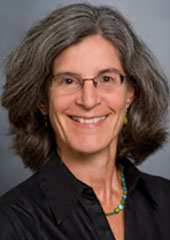
Dr. Lisa Croen is a senior research scientist at the Division of Research at Kaiser Permanente Northern California (KPNC) and the director of the Kaiser Permanente Autism Research Program. Her research interests include the epidemiology of autism and other neurodevelopmental disorders, environmental exposures and gene/environment interaction, and adverse perinatal outcomes. Currently, Dr. Croen leads several studies, including the Early Markers for Autism study (EMA); An ASD Enriched Risk (ASD-ER) ECHO cohort; Early Life Exposure to Endocrine Disrupting Chemicals and Child Growth, Adiposity, and Neurodevelopment (ELEGANT) ECHO cohort; and Prenatal SSRI Exposure, Maternal and Child Genotype, and Autism Spectrum Disorders. In collaboration with clinical colleagues, she is conducting a mixed methods study to evaluate autism treatments at KPNC and investigating health status and healthcare utilization of adolescents and adults with autism. Dr. Croen received both her master's degree in public health and her doctorate in epidemiology from the University of California, Berkeley.
Daniel Coury, M.D.
Chief, Section of Developmental and Behavioral Pediatrics, Nationwide Children's Hospital; Professor of Clinical Pediatrics and Psychiatry; Ohio State University College of Medicine
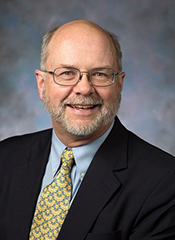
Dr. Daniel Coury is Chief of the Section of Developmental and Behavioral Pediatrics at Nationwide Children's Hospital and a Professor of Clinical Pediatrics and Psychiatry at the Ohio State University College of Medicine. Activities over the past two decades include federally funded projects in the areas of drug exposed infants, training in developmental and behavioral pediatrics, pediatric residency curriculum guidelines, pediatric psychopharmacology, training professionals in dual diagnosis and the establishment of a web site for developmental and behavioral pediatrics. He also is active in conducting pediatric psychopharmacology clinical trials. Dr. Coury’s research interests include developmental and behavioral pediatrics, medical education, attention deficit hyperactivity disorder, and autism. In addition to his duties as Section Chief, he is the Administrative Medical Director for Nationwide Children's Hospital Behavioral Health Services and is Medical Director of The Autism Treatment Network of Autism Speaks. Dr. Coury received his medical degree from the University of Tennessee Center for Health Sciences, followed by an internship and residency in pediatrics at the University of Tennessee Center for Health Sciences. He was a fellow in ambulatory pediatrics at Brown University.
Orrin Devinsky, M.D.
Professor, Departments of Neurology, Neurosurgery, and Psychiatry, New York University School of Medicine; Director, NYU Langone, Comprehensive Epilepsy Center

Dr. Orrin Devinsky is a neurologist, lecturer, and author. He is a Professor of Neurology, Neurosurgery and Psychiatry at New York University School of Medicine and is also Director of the NYU Langone Comprehensive Epilepsy Center. Dr. Devinsky and his co-investigators are presently conducting studies of several investigational antiepileptic medications such as topiramate, tiagabine, lamotrigine, vigabatrin, oxcarbazepine, and remacemide, as well as vagal nerve stimulator implantation. He is a leader in furthering research into the surgical treatment of epilepsy as well as developing new antiepileptic drugs. Dr Devinsky is the Principal Investigator of the SUDC Registry and Research Collaborative, a multisite collaborative created at NYU Langone Health with Columbia University, the Mayo Clinic and national Forensic Pathologists which studies sudden unexplained deaths in children. Dr. Devinsky has authored over 15 professional books. Dr. Devinsky received his medical degree from Harvard Medical School and is board certified in neurology and neurophysiology. He completed his residency in neurology at the New York Presbyterian - Weill Cornell Medical Center, followed by a fellowship at the NIH.
Sarah Gardner
Voice Over Artist; Reporter, KVIE Public Television

Ms. Sarah Gardner and her husband Chuck are among the UC Davis MIND Institute’s founding families. They have two children, one of whom, their son, has autism. Ms. Gardner has been a member of the MIND Institute Advisory Council since 2007. During more than a decade of involvement and as a Founding Family member, Ms. Gardner has been an enthusiastic advocate for and leader of philanthropic efforts on behalf of the institute. She remains committed to the institute’s mission of finding treatments, causes and preventions for autism and other neurodevelopmental disorders. She is a former news anchor for KCRA Channel 3.
Dena Gassner, L.M.S.W.
Ph.D. Candidate, Adelphi University; Adjunct Faculty, Adelphi University; Adjunct Faculty, Towson University; Board of Directors, The Arc US; Professional Advisory Board Member, Asperger Syndrome and High Functioning Autism Association
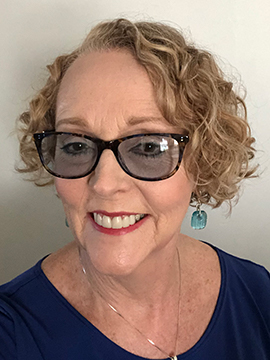
Ms. Dena Gassner is a Ph.D. candidate at Adelphi University, where she is studying Social Welfare, and a member of the Board of Directors at the Arc US. After completion of her master’s degree, she transitioned to individual/family coaching support in the field of autism and similar processing/developmental learning challenges. She recently completed two years as an itinerant faculty member for Health-Education Network traveling the nation, providing professional development training to teachers, psychologists, psychiatrists, social workers, behavioral consultants, families, individuals and others. Today, she continues her work as an advocate, writer, and national presenter to school, families, and agencies throughout the country. She’s done this while operating a private systems navigation practice, the Center for Understanding, in Nashville, Tennessee. Through the Center she encourages healthier living for those with Asperger’s Syndrome and empowers persons to leave shame and inadequacy behind. Ms. Gassner lives a life of transparency embracing her identity as a person with an autism spectrum condition. She has used her own self-awareness and sense of urgency to assist her son, Patrick who is also on the spectrum. She earned her M.S.W. from the University of Kentucky and trained at the Cincinnati Children’s Hospital to become a certified early intervention specialist.
Antonio Hardan, M.D.
Professor of Psychiatry and Behavioral Sciences, Stanford University Medical Center; Director, Autism and Developmental Disabilities Clinic, Medical Director, Outpatient Program, Division of Child and Adolescent Psychiatry; Director, Division of Child and Adolescent Psychiatry, Stanford Medicine
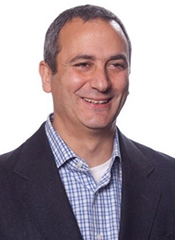
Dr. Antonio Hardan is a Professor of Psychiatry and Behavioral Sciences at the Stanford University Medical Center. He has appointments at Stanford Medicine as the Director of Autism and Developmental Disabilities Clinic, Medical Director of the Outpatient Program within the Division of Child and Adolescent Psychiatry, and as Director of the Division of Child and Adolescent Psychiatry. Dr. Hardan’s research focuses on the neurobiology and neuroimaging of autism, psychopharmacological treatment of children and adults with autism and/or developmental disorders, and the neurobiology and innovative interventions of several neurogenic disorders including DiGeorge Syndrome, PTEN mutations, and Phelan McDermid Syndrome. Dr. Hardan received his medical degree from St. Joseph’s University. He completed his internship and residency at St. Elizabeth Hospital and Strong Memorial Hospital, respectively. He went on to fellowship at the University of Pittsburgh.
Joseph Joyce, C.P.C.U., C.W.C.A.
Executive Vice President of Property and Casualty Insurance for Keystone Insurers Group Inc.; Executive Chair, Board of Directors, Autism Society
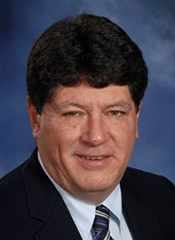
Mr. Joseph Joyce is the Executive Vice President of Property and Casualty Insurance for Keystone Insurers Group Inc. (KIG), a franchisor of independent insurance agencies. Mr. Joyce has been with KIG since 2000, during which time he has also served on the Board of Directors of Keystone National Insurance Company and the American Society of Environmental Professionals. Mr. Joyce has three children, one of whom is on the autism spectrum. Mr. Joyce serves as the Executive Chair on the Board of Directors of the Autism Society. Mr. Joyce graduated with a Bachelor of Arts in economics and finance from LaSalle University, and received his Master of Business Administration from Penn State University. Mr. Joyce holds the C.P.C.U. and C.W.C.A. professional insurance designations.
Connor Kerns, Ph.D.
Assistant Professor, Psychology Department, University of British Columbia
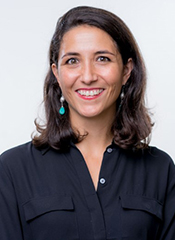
Dr. Connor Kerns is a Clinical Psychologist and Assistant Professor at the University of British Columbia. Her research interests include assessment and treatment of ASD, childhood anxiety, and stress-related disorders (including trauma-related disorders) in children with and without ASD. Her work explores sources and manifestations of stress in people on the autism spectrum with the aim of developing and testing new clinical assessment tools and psychotherapies. Previously she was an assistant research professor at the AJ Drexel Autism Institute in Philadelphia, where she studied focused on anxiety and stress-related disorders in youth with autism in addition to contributing as a Co-I to several large-scale studies of early autism detection and treatment. She received her undergraduate degree from BA in English Cornell University and earned an M.A. and Ph.D. in Psychology from Temple University. Additionally, she completed specialized clinical training in ASD, anxiety disorders, OCD and pediatric psychology at the Mount Sinai School of Medicine in New York City, AI Dupont Hospital for Children in Wilmington, DE, the Department of Psychiatry at University of Pennsylvania and the Children’s Hospital of Philadelphia, in Philadelphia PA.
Bryan King, M.D., M.B.A.
Professor, Department of Psychiatry, University of California San Francisco; Vice Chair of Child and Adolescent Psychiatry, UCSF Health; Vice President, Child Behavioral Services, UCSF Benioff Children’s Hospitals

Dr. Bryan King is a Professor of Psychiatry at the University of California San Francisco, Vice Chair of Child and Adolescent Psychiatry for UCSF Health, and Vice President for Child Behavioral Health Services at UCSF Benioff Children’s Hospitals. His research and clinical work has focused on psychiatric aspects of developmental disorders, and on the pathogenesis and treatment of significant behavioral disturbance in autism and related disorders in particular. In recent years, this focus has been primarily directed on interventions in autism including both pharmacological and psychosocial treatments. Previously he worked in a number of clinical leadership positions at Seattle Children’s Hospital, the Dartmouth-Hitchcock Medical Center and Children’s Hospital at Dartmouth-Hitchcock, and the UCLA Neuropsychiatric Institute and Hospital, in addition to serving as medical director for State of New Hampshire’s Division of Developmental Services for a four-year span beginning in 2001. He also served as the founding director of the Seattle Children’s Autism Center. Dr. King earned his M.D. from the Medical college of Wisconsin, followed by an internship at UCLA Center for Health Sciences and residency and fellowship at UCLA Neuropsychiatric Institute.
Clarissa Kripke, M.D., F.A.A.F.P.
Clinical Professor, Family Community Medicine, University of California San Francisco; Director, Office of Developmental Primary Care, University of California San Francisco
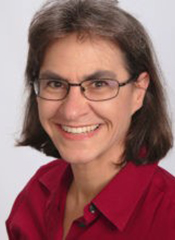
Dr. Clarissa Kripke is Clinical Professor of Family and Community Medicine. She directs the Office of Developmental Primary Care (ODPC), which is a program dedicated to improving outcomes for people with developmental disabilities across the lifespan with an emphasis on adolescents and adults. In 2006 Dr. Kripke joined a grassroots initiative to improve health outcomes for adults with developmental disabilities. The initiative then formed the CART Collaborative, which provides support for Clinical services, Advocacy, Research, and Training to serve transition aged youth and adults. The ODPC was established to support this collaborative. She cares for people of all ages and has special interests in primary care of transition age youth and adults with developmental disabilities. Dr. Kripke received her M.D. from Temple University.
Beth Ann Malow, M.D., M.S.
Burry Chair in Cognitive Childhood Development, Professor of Neurology and Pediatrics; Director, Vanderbilt Sleep Disorders Division
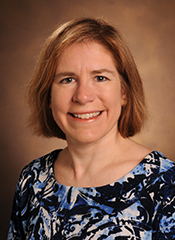
Dr. Beth Ann Malow studies the interrelationship of sleep and neurological disorders in the Vanderbilt Sleep Disorders Division. She fosters multidisciplinary collaborations examining the relationship of sleep to a variety of neurological, medical, and psychiatric disorders, including developmental disabilities such as autism. She is the site Principal Investigator for two large networks, the NeuroNEXT network and the Autism Treatment Network, and has led federally-funded studies in behavioral sleep education and supplemental melatonin in children with autism. Prior to joining the faculty at Vanderbilt, Dr. Malow was a tenured associate professor of Neurology at the University of Michigan and director of the Sleep Medicine Fellowship Program. Dr. Malow received her M.D. from Northwestern University Medical School. She completed her internship in Medicine at Beth Israel Medical Center and residency in the Harvard-Longwood Neurological Training Program. This was followed by a fellowship in epilepsy, EEG, and sleep at the National Institutes of Health in Bethesda, MD. She has a M.S. in Clinical Research Design and Statistical Analysis in at the University of Michigan and is board certified in Neurology and Sleep Medicine. She is the mother of two children on the autism spectrum.
Micah Mazurek, Ph.D.
Associate Professor of Education, Curry School of Education, University of Virginia
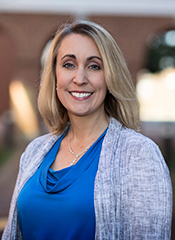
Dr. Micah Mazurek is a clinical psychologist with broad experience in psychological assessment and intervention, and specific expertise in autism and other neurodevelopmental disorders. She has been active in efforts to enhance quality of care through training, capacity-building, and development and dissemination of best-practice autism guidelines and toolkits. Dr. Mazurek’s current research focuses on developing new tools, techniques, and technologies for improving diagnosis, treatment, and access to care for individuals with autism and their families. Her projects focus on the development of new tools for outcome assessment, new models for intervention, and new methods of enhancing access to care for underserved populations. Additional projects focus on addressing co-occurring problems in children with ASD (e.g., sensory problems, sleep problems, anxiety, and aggression), and on understanding screen-based technology use in children and adults with ASD. Prior to her current position, she was an Associate Professor at the University of Missouri and at the Thompson Center for Autism and Neurodevelopmental Disorders and served as Director of the Missouri Leadership Education in Neurodevelopmental Disabilities (LEND) program. Dr. Mazurek received her bachelor’s degree in psychology from Yale University and her master’s and doctoral degrees in clinical psychology from the University of North Carolina at Greensboro. She completed her pre-doctoral clinical internship at the University of Alabama at Birmingham and her postdoctoral fellowship at the University of Missouri.
Donna Murray, Ph.D., C.C.C.-S.L.P.
Vice President, Clinical Programs, Head, Autism Treatment Network, Autism Speaks; Adjunct Associate Professor of Clinical Pediatrics, Division of Developmental and Behavioral Pediatrics, Cincinnati Children’s Hospital/University of Cincinnati
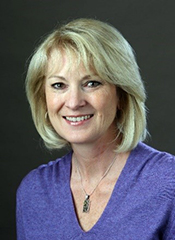
Dr. Donna Murray is Vice President of Clinical Programs and Head of the Autism Treatment Network (ATN) at Autism Speaks and Adjunct Associate Professor of Clinical Pediatrics in the Division of Developmental and Behavioral Pediatrics at Cincinnati Children’s Hospital/University of Cincinnati. At Autism Speaks, Dr. Murray oversees the activities of the ATN and other clinical programs. Prior to joining Autism Speaks, Dr. Murray worked as the Clinical Director for the Division of Developmental and Behavioral Pediatrics and Co-Director of the Kelly O’Leary Center for Autism Spectrum Disorders at Cincinnati Children’s Hospital. While at Cincinnati she helped build one of the largest hospital-based autism programs in the country, developing partnerships with community agencies to improve access to services and build community capacity. Dr. Murray’s current interests include examining the use of quality improvement methodology to improve clinical care and outcomes for children with ASD. Her research includes studies examining language, social skills, diagnosis, and intervention in ASD. She received her Master’s in Speech-Language Pathology from the University of Louisville. She received her Ph.D. from the University of Cincinnati, in the Department Communication Sciences and Disorders where she focused on the neurosensory aspects of communication, language, and social skills in autism spectrum disorders.
Christina Nicolaidis, M.D., M.P.H.
Professor and Senior Scholar in Social Determinants of Health, School of Social Work, Portland State University; Co-Director, Academic Autism Spectrum Partnership in Research and Education (AASPIRE); and Adjunct Associate Professor, Division of General Internal Medicine and Geriatrics, Oregon Health and Science University
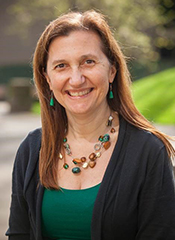
As a general internist and health services researcher, Dr. Nicolaidis uses participatory research to improve the health and healthcare of marginalized populations. Most of her current projects focus on autism in adulthood. She is the co-founder and co-director of the Academic Autism Spectrum Partnership in Research and Education (AASPIRE), an international academic-community partnership that uses community based participatory research to address the priorities of autistic adults. AASPIRE has conducted a series of National Institute of Health-funded studies on healthcare and employment for autistic adults and has created the AASPIRE Healthcare Toolkit for use in primary care settings. She also is the founding Editor-in-Chief of a new peer-reviewed journal, Autism in Adulthood, More broadly, Dr. Nicolaidis works to improve health equity and address social determinants of health. She has led or collaborated on multiple projects on intimate partner violence, racial and ethnic health equity, chronic pain, substance use disorders, mental health in primary care, and patient-provider communication. She directs the Social Determinants of Health Initiative at Portland State University (PSU), where she is a Professor in the School of Social Work. She also continues to teach and practice internal medicine at Oregon Health and Science University (OHSU). Dr. Nicolaidis earned her undergraduate degree from Brown University and her medical degree at Columbia University. She completed her residency in Internal Medicine at OHSU, where she was Chief Resident. She went on to do her fellowship as part of Robert Wood Johnson Clinical Scholars Program at the University of Washington. Dr. Nicolaidis earned her M.P.H. in epidemiology at University of Washington. Dr. Nicolaidis is the parent of a transition age youth on the autism spectrum.
Dora Raymaker, Ph.D.
Research Assistant Professor, Portland State University; Co-Director, Academic Autism Spectrum Partnership in Research and Education (AASPIRE)
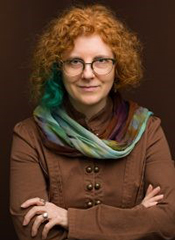
Dr. Dora Raymaker is a Research Assistant Professor at Portland State University’s Regional Research Institute for Human Services in the School of Social Work, Co-Director of the Academic Autism Spectrum Partnership in Research and Education (AASPIRE), and an autistic person. She became part of Portland State University’s Regional Research Institute for Human Services as a graduate student and is now a principal investigator and co-investigator on multiple projects. Her research interests include community-engaged research practices, systems thinking, accessible technology, measurement adaptation and knowledge translation, and dynamics at the intersection of science, society, and public policy. Dr. Raymaker conducts intervention and services research in collaboration with disabilities and mental health communities. Her autism research, primarily with adults, is focused on intervention development to improve healthcare access and quality, to improve employment outcomes, and to reduce stigma. Dr. Raymaker is the Associate Editor of the journal Autism in Adulthood and on the Scientific Council at the Organization for Autism Research. Dr. Raymaker received her Ph.D. in Systems Science from Portland State University, as well as Graduate Certificates in Computer Modeling and Simulation and Computational Intelligence.
Elliott Sherr, M.D., Ph.D.
Professor of Neurology and Pediatrics; Director, Brain Development Research Program, University of California, San Francisco
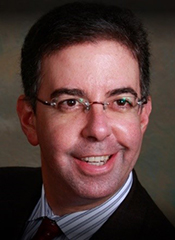
Dr. Elliott Sherr is the founder and Principal Investigator of the Brain Development Research Program (BDRP) at UCSF. Dr. Sherr is a Child Neurologist, and he is invested in elucidating the genetics of neurodevelopmental disorders such as autism and epilepsy, with a focus in structural brain malformations such as agenesis of the corpus callosum. In addition to studying the genetics of neurodevelopmental disorders, Dr. Sherr is also leading the BDRP to better understand how brain structure and function is related to behavior using advanced imaging tools such as fMRI, DTI (diffusion tensor imaging) and MEG technology. He is also the Principal Investigator of the neuroimaging core of the Simons Variation in Individuals Project (Simons VIP) that studies the most common known cause of autism, chromosomal rearrangements at 16p11.2. In addition to his efforts at the BDRP and the Simons VIP, Dr. Sherr co-directs the neurometabolic program and clinic at UCSF and is an active attending physician in the division of child neurology. Dr. Sherr attained his M.D. and Ph.D. degrees at Columbia University. Dr. Sherr trained in Pediatrics and completed his residency in Child Neurology at UCSF, where he also completed a research fellowship prior to opening his own lab.
Matthew Siegel, M.D.
Vice President Medical Affairs, Developmental Disorders Service, Maine Behavioral Healthcare; Associate Professor of Psychiatry & Pediatrics, Tufts University School of Medicine; Faculty Scientist II, Maine Medical Center Research Institute
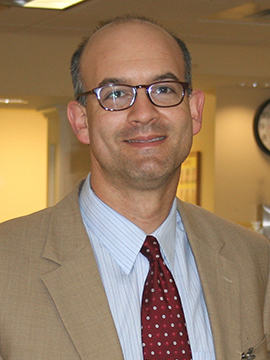
Dr. Siegel is the Vice President of Medical Affairs within the Developmental Disorders Service at Maine Behavioral Healthcare, Associate Professor of Psychiatry and Pediatrics at Tufts University School of Medicine, and Faculty Scientist II at Maine Medical Center Research Institute. He has developed a continuum of treatment and research for individuals with autism, intellectual disability, co-occurring mental illness and challenging behaviors. He is the Principal Investigator of the Autism and Developmental Disorders Inpatient Research Collaborative (ADDIRC), a network of specialized child psychiatry units performing a multi-site study of severe autism and modeling use of biological sensors to predict the onset of challenging behaviors. Dr. Siegel is nationally recognized for his expertise in inpatient care for individuals with developmental disorders. He serves on the Autism and Intellectual Disability Committee of the American Academy of Child & Adolescent Psychiatry and is a co-author of the Academy’s Practice Parameter on the Assessment and Treatment of Children and Adolescents with Autism Spectrum Disorder. Dr. Siegel attended Amherst College, Stanford Medical School and trained at Brown University in child psychiatry, psychiatry, and pediatrics.
Sarah Spence, M.D., Ph.D.
Co-Director, Autism Spectrum Center, Boston Children’s Hospital; Assistant Professor of Neurology, Harvard Medical School
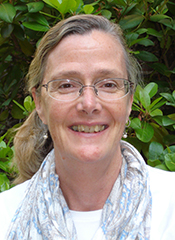
Dr. Sarah Spence’s clinical and research activities have been focused on children with ASD and related disorders for 20 years. As a child neurologist with doctoral training in cognitive neuroscience, her research interests are in the interface between brain and behavior. She credits the formation of her ASD expertise to the experience of doing home visits for the Autism Genetic Resource Exchange (AGRE), a large autism genebank. She spent 6 years as the medical director of the UCLA Autism Evaluation Clinic and then 4 years at the National Institute of Mental Health (NIMH) doing clinical research. She was recruited to Boston Children’s Hospital (BCH) in 2010 where she led a multi-disciplinary effort to create the Autism Spectrum Center at BCH, of which she is co-director. At Boston Children’s she is combining her interests and expertise in clinical care, clinical research, and teaching with a primary focus on improving the lives of children with autism spectrum disorders and their families. Dr. Spence earned her undergraduate degree in psychobiology from Harvard Radcliffe College. She then earned her Ph.D. in Behavioral Neuroscience from the University of California at Los Angeles, where she also completed her residencies in pediatrics and neurology and fellowship in pediatric neurology. She received her M.D. form the University of California at San Francisco.
Jeremy Veenstra-VanderWeele, M.D.
Ruane Professor for The Implementation of Science for Child and Adolescent Mental Health (In Psychiatry), Columbia University Medical Center; Director, Division of Child and Adolescent Psychiatry, New York-Presbyterian/Morgan Stanley Children’s Hospital, New York State Psychiatric Institute (NYSPI), and Columbia University; Co-Director, NIMH T32 Postdoctoral Fellowship for Translational Research in Child Psychiatric Disorders, NYSPI/Columbia University Medical Center; Co-Director, Whitaker Scholar Program in Developmental Neuropsychiatry, NYSPI/Columbia University Medical Center
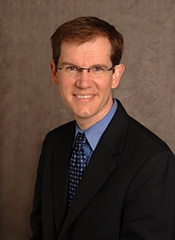
Dr. Jeremy Veenstra-VanderWeele is the Ruane Professor for The Implementation of Science for Child and Adolescent Mental Health at Columbia University Medical Center; Director of the Division of Child and Adolescent Psychiatry at New York-Presbyterian/Morgan Stanley Children’s Hospital, New York State Psychiatric Institute (NYSPI), and Columbia University; and Co-Director of both the NIMH T32 Postdoctoral Fellowship for Translational Research in Child Psychiatric Disorders and the Whitaker Scholar Program in Developmental Neuropsychiatry at NYSPI/Columbia University Medical Center. Dr. Veenstra-VanderWeele is a child and adolescent psychiatrist who uses molecular and translational neuroscience research tools in the pursuit of new treatments for autism spectrum disorder and pediatric obsessive-compulsive disorder. Prior to joining the Department of Psychiatry at Columbia, Dr. Veenstra-VanderWeele was director of the Division of Child and Adolescent Psychiatry at Vanderbilt University, where he was also an associate professor and medical director for the Treatment and Research Institute for Autism Spectrum Disorder. Dr. Veenstra-VanderWeele’s laboratory focuses on the serotonin and glutamate systems in genetic mouse models with abnormal social or repetitive/compulsive-like behavior. His clinical/translational research program at the New York-Presbyterian Hospital Center for Autism and the Developing Brain studies potential treatments for autism spectrum disorder and related genetic syndromes. His long-term goal is to be able to develop novel approaches in the molecular laboratory that can then be tested in children. He trained in human molecular genetics in the laboratory of Edwin H. Cook at the University of Chicago. Following his child and adolescent psychiatry fellowship, he expanded his research experience with a postdoctoral research fellowship in molecular neuroscience with Randy Blakely and Jim Sutcliffe at Vanderbilt University.


